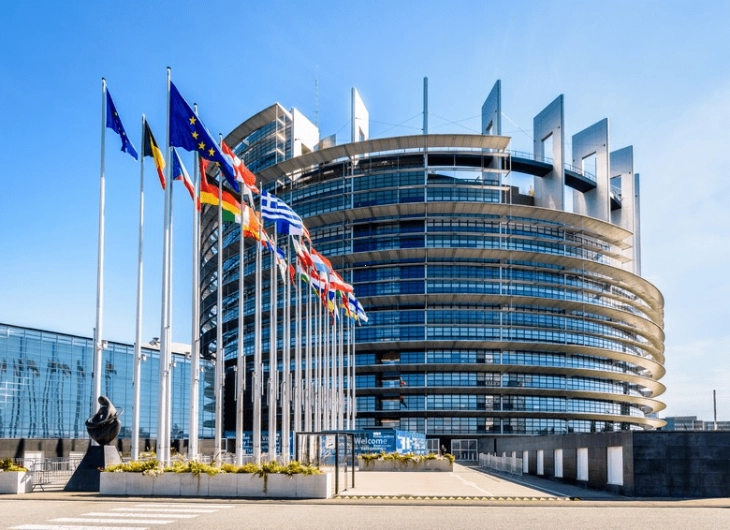EU Parliament backs higher green energy and energy saving targets

Strasbourg, 14 September 2022 (dpa/MIA) - More ambitious targets for boosting renewable energy use while cutting overall energy consumption got boosts on Wednesday with votes on two different draft bills before the European Parliament.
EU legislators endorsed increasing the share of green energy consumed in the European Union to 45% by 2030. EU capitals had previously backed a binding target of 40%.
Currently 22% of the energy consumed in the European Union comes from renewable sources, according to Germany's Federal Statistical Office.
The draft bill also deals with criteria for labelling certain energy sources as green, including biomass and hydrogen.
Biomass is considered a sustainable energy source, though activists and scientists have criticized the fact that burning wood, for instance, releases high levels of climate-damaging carbon dioxide (CO2) emissions, that would otherwise be bound up in plants.
The EU Parliament wants to keep biomass, including wood, a sustainable source of energy, but wants to cap its amount and phase out certain subsidies.
Lawmakers also set criteria for defining hydrogen as green, including what power plants can be used to produce it. Hydrogen can be made using electricity from renewable sources.
Lawmakers also voted in favour of introducing higher energy-saving targets.
EU countries are to reduce end user energy consumption by at least 40% by 2030, compared to 2007 projections.
The European Parliament and the Council, the EU body representing the 27 member states, vote on draft bills to approve their positions before entering negotiations between the different institutions, in which the texts are finalized before the laws enter into force.
The two pieces of legislation are part of the bloc’s climate change package dubbed Fit for 55, aiming to reduce climate-damaging emissions by 55% by 2030, when compared to 1990 levels, and reach climate neutrality by 2050.







